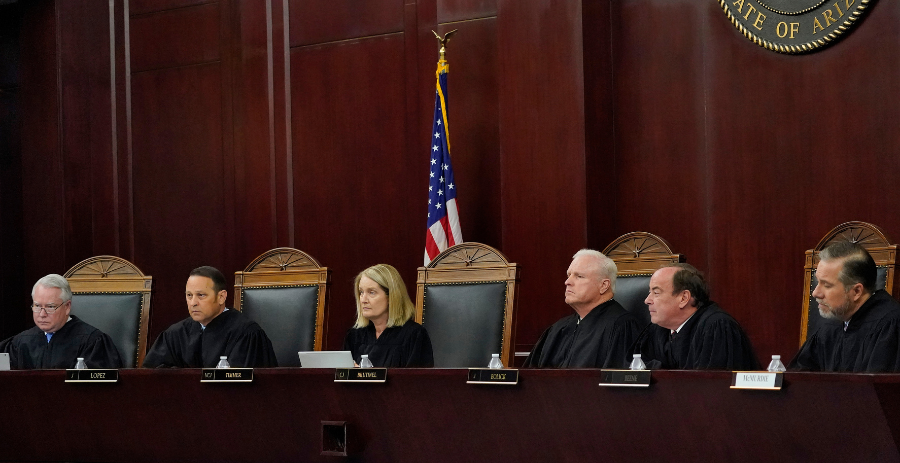arizona
Court Dismisses Claims That Justices Misstep in Robes at Religious Event

The Arizona Supreme Court recently altered its oversight of the Judicial Ethics Advisory Committee, concealing an opinion that deemed it inappropriate for justices to wear their robes at religious events. This decision has sparked concerns about transparency and the implications for judicial conduct.
In a formal request, the committee was asked to evaluate the ethics of judges appearing in official robes during the Red Mass, an annual Roman Catholic service that invites legal professionals to seek divine guidance. The advisory committee concluded that robes should not be worn at such religious functions to prevent any appearances of undue influence. Following the committee’s reaffirmation of this stance, the majority of justices voted to withdraw the opinion, effectively removing it from public access and from the state’s ethics guidelines.
This capability of the Supreme Court to withdraw an opinion stems from a newly adopted emergency rule that allows prior review of the committee’s advisory opinions before they become official. April Elliot, the committee’s staff director, emphasized that this rule provides the court with more control and options regarding advisory opinions.
The Judicial Ethics Advisory Committee is distinct from the Commission on Judicial Conduct, which handles complaints against judicial officials. The committee primarily issues opinions based on the Code of Judicial Conduct and may receive requests from judges or candidates concerning their prospective actions.
On January 23, several justices, including Justices William Montgomery and Kathryn King, took part in the Red Mass in Phoenix, where they were photographed in their robes. The next day, the committee was prompted to examine the morality of judges wearing robes during such events, especially when participating in significant roles.
After multiple inquiries from judicial officers, the advisory committee prepared its formal opinion, which stated that while judges may participate in religious services, they should not wear their judicial robes, as those represent their official duties. This opinion was finalized and returned on June 3, outlining that robe-wearing at such events could undermine public perception of judicial independence and integrity.
Three fundamental rules were cited in the committee’s position: judges must uphold public confidence in the judiciary, avoid any implications that external influences can sway their decisions, and refrain from activities that could compromise their judicial independence. This ruling underscores the judicial robe’s significance as a symbol of office, reminding judges that they engage in mild acts of civic participation rather than official duties when attending religious services.
The advisory committee’s final ruling on this matter came amid discussions about whether the Supreme Court was trying to steer its conclusions. Elliot noted the unusual nature of the court’s withdrawal of an opinion but did not perceive it as exceeding the court’s authority.
A vote on whether to solidify this new rule will occur in December, while Elliot anticipates additional inquiries regarding the Red Mass in January, suggesting that the committee may revisit the topic based on judicial interest.


















